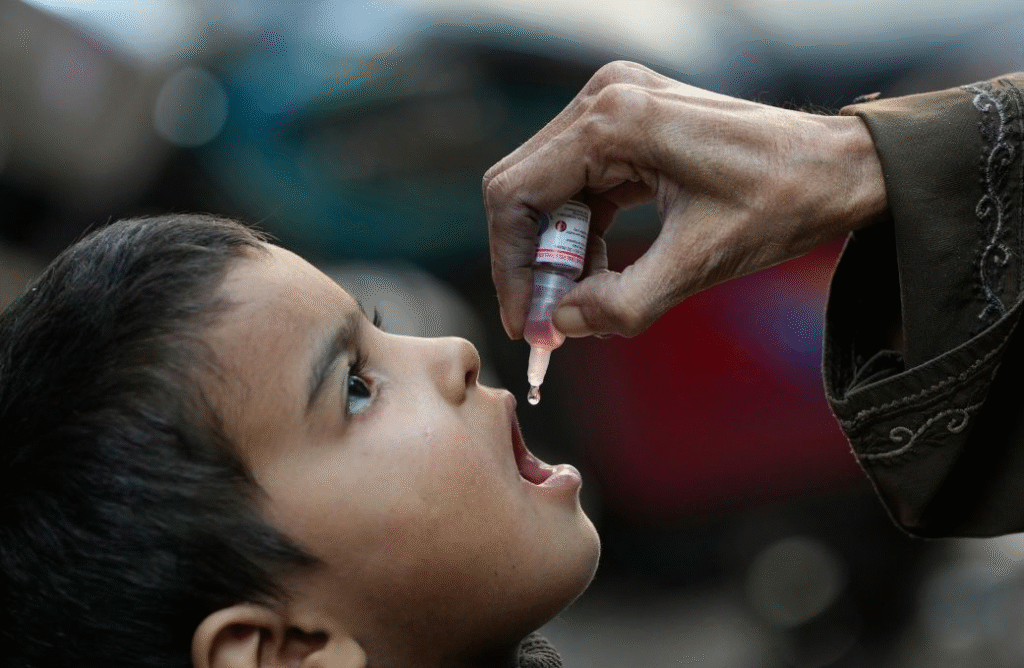Geneva/New York, 15 July 2025 — New data released by the World Health Organization (WHO) and UNICEF reveals that global childhood immunization rates remained largely stable in 2024. Despite modest gains, over 14 million infants received no vaccines at all, raising alarms about persistent gaps in access and the rising threat of vaccine-preventable diseases.
According to the report, 89% of infants worldwide—about 115 million—received at least one dose of the diphtheria, tetanus and pertussis (DTP)-containing vaccine, while 85% (109 million) completed the full three-dose series. Compared to 2023, this marks a modest improvement: 171,000 more children received an initial dose and 1 million more completed the series.
Yet troubling disparities remain. Roughly 20 million children missed at least one dose, including 14.3 million “zero-dose” children—infants who received no routine vaccines at all. That number exceeds the Immunization Agenda 2030 target by 4 million and remains higher than pre-pandemic levels in 2019.
“Vaccines save lives, allowing individuals, families, and nations to thrive,” said WHO Director-General Dr. Tedros Adhanom Ghebreyesus. “While the slight uptick in coverage is encouraging, millions of children remain vulnerable due to shrinking aid, misinformation, and fragile health systems.”
Conflict Zones and Fragile States Face the Greatest Burden
Data from 195 countries shows that children in fragile and conflict-affected regions remain the most vulnerable. A quarter of the world’s infants live in 26 such countries, yet they account for half of all zero-dose children globally. The number of unvaccinated children in these areas surged from 3.6 million in 2019 to 5.4 million in 2024.
“No child should die from a disease we know how to prevent,” said UNICEF Executive Director Catherine Russell. “Yet millions remain unprotected due to instability, misinformation, and underfunded health systems.”
Progress is also stalling in middle- and high-income countries. Even small declines in immunization coverage in these regions could trigger disease outbreaks and strain public health systems.
Bright Spots in Lower-Income Countries
Encouragingly, lower-income countries supported by Gavi, the Vaccine Alliance, made notable progress. Immunization rates improved across all Gavi-supported vaccines, with around 650,000 fewer children un- or under-vaccinated in 2024 compared to the previous year.
“Lower-income countries protected more children than ever before,” said Dr. Sania Nishtar, CEO of Gavi. “But rising population pressures and instability continue to challenge our efforts to reach every child.”
Expanded Protection, But Still Falling Short
While routine immunization against DTP showed some progress, coverage against measles and human papillomavirus (HPV) remains far below targets.
- Measles: 84% of children received the first dose, and 76% received the second—a slight increase, but far from the 95% needed to prevent outbreaks. Over 30 million children remain under-protected, and measles outbreaks surged in 60 countries in 2024, nearly doubling from two years prior.
- HPV: 31% of eligible adolescent girls received at least one dose in 2024—up from 17% in 2019—thanks to national scale-ups and revitalization campaigns. However, the target is 90% coverage by 2030, and progress must accelerate to meet that goal.
A Call to Action
WHO and UNICEF urge governments and global health partners to:
- Close funding gaps for Gavi’s next strategic cycle (2026–2030);
- Strengthen immunization systems in conflict and fragile settings;
- Invest in domestic health systems, embedding vaccination into primary care;
- Combat misinformation with evidence-based outreach; and
- Improve data and surveillance to better target interventions.
The report’s message is clear: while the world is making steady progress, it is not moving fast enough to reach the Immunization Agenda 2030 targets. Millions of children still face preventable illness and death unless urgent action is taken.
“The promise of protecting every child is slipping out of reach,” said Dr. Tedros. “But with renewed commitment and smart investment, we can still make it a reality.
